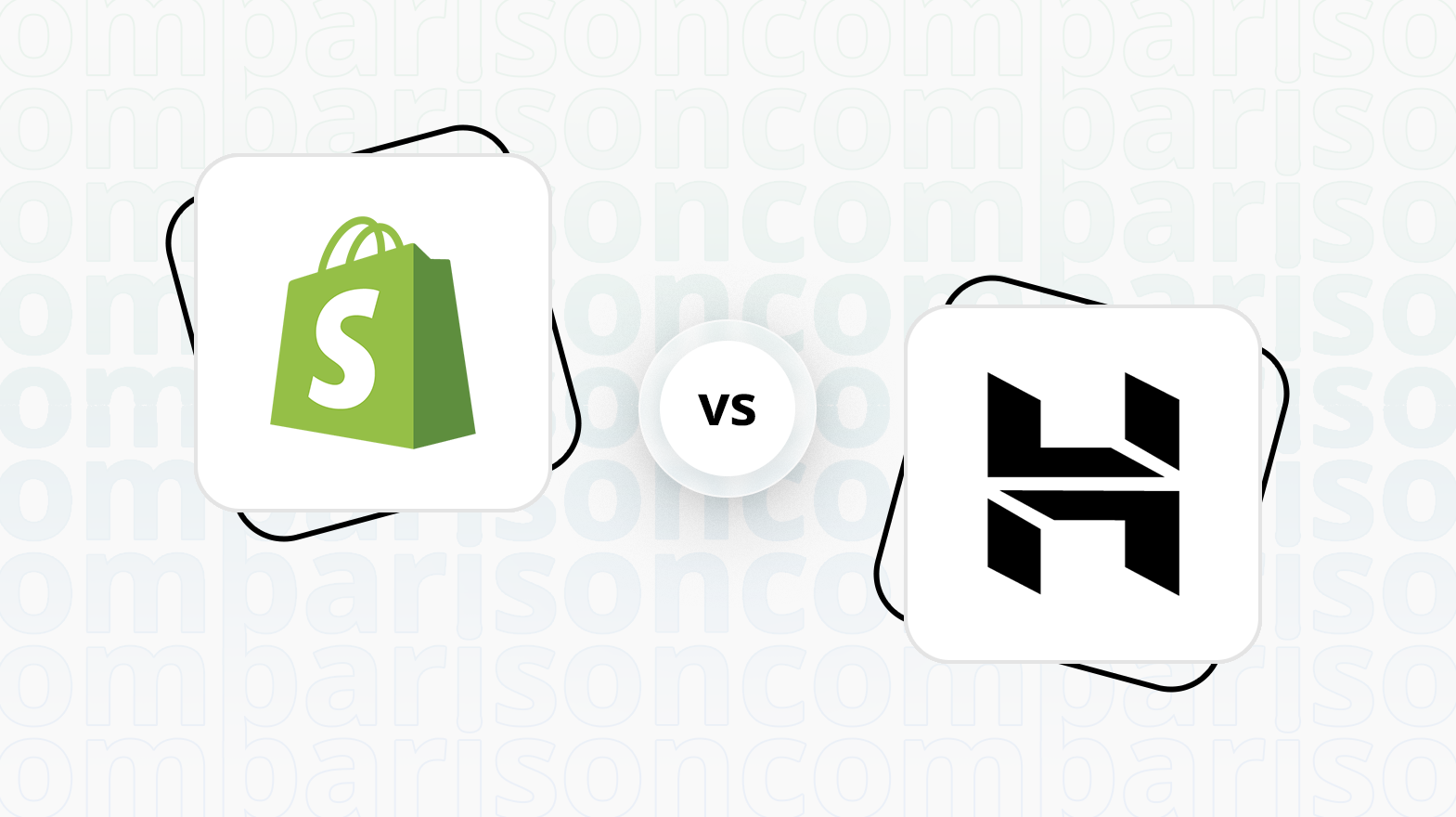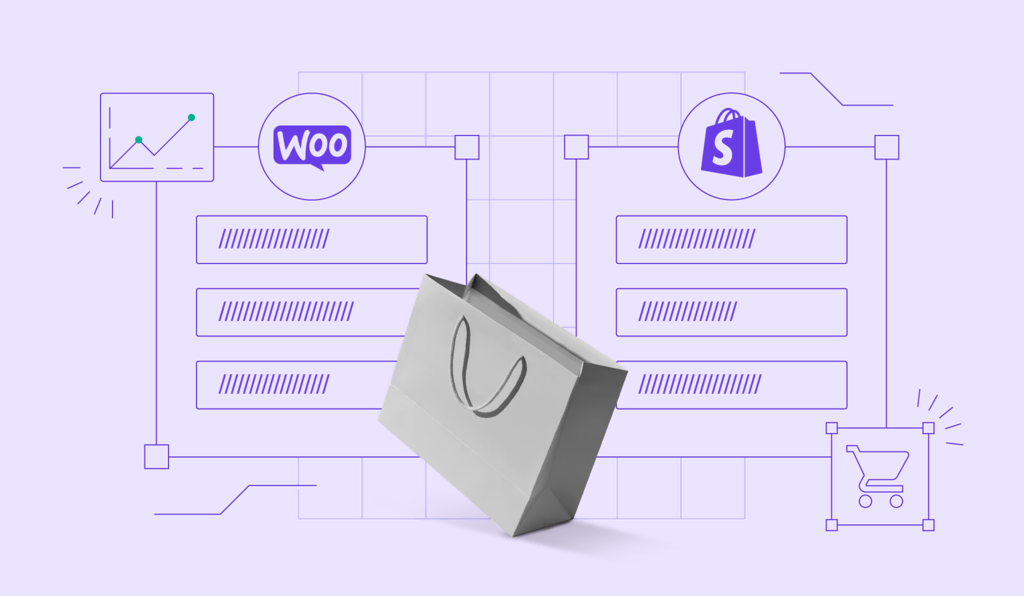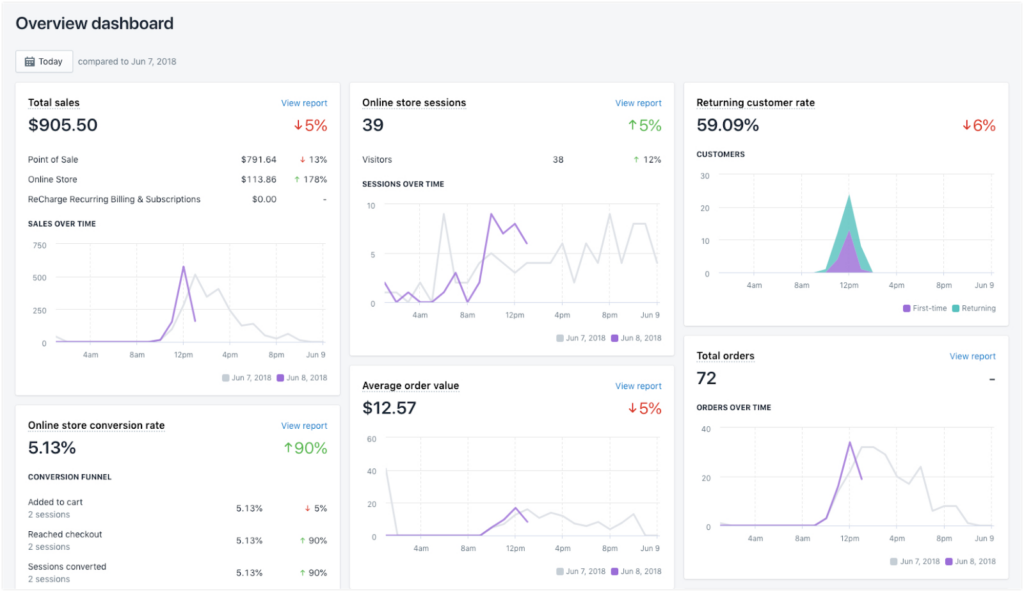Hostinger offers budget-friendly web hosting, ideal for beginners. Shopify specializes in e-commerce solutions, perfect for online stores.
Hostinger provides affordable plans with strong performance and user-friendly tools. It caters to those who need reliable web hosting without breaking the bank. Its easy-to-use interface and robust features make it a popular choice for small businesses and personal websites.
On the other hand, Shopify focuses on e-commerce platforms, offering comprehensive tools for online store management. It excels in providing an all-in-one solution for businesses to create, customize, and manage their online stores. Shopify’s features include inventory management, payment processing, and marketing tools, making it an excellent choice for entrepreneurs looking to establish or grow their online presence.
Pricing
Choosing the right platform often comes down to pricing. Both Hostinger and Shopify offer distinct pricing plans, catering to different needs. Let’s dive into the specifics of each to help you make an informed decision.
Hostinger Pricing Plans
Hostinger offers competitive pricing with three main plans. Each plan includes various features to suit different needs.
| Plan | Monthly Cost | Key Features |
|---|---|---|
| Single Shared Hosting | $1.99 | 1 Website, 100 GB Bandwidth, 1 Email Account |
| Premium Shared Hosting | $2.99 | 100 Websites, Unlimited Bandwidth, Free Domain |
| Business Shared Hosting | $4.99 | All Premium Features, Daily Backups, Free CDN |
Shopify Pricing Plans
Shopify provides a range of plans tailored for e-commerce businesses. Each tier includes different benefits.
- Basic Shopify: $29/month – 2 Staff Accounts, Basic Reports, Online Store
- Shopify: $79/month – 5 Staff Accounts, Professional Reports, Gift Cards
- Advanced Shopify: $299/month – 15 Staff Accounts, Advanced Reports, Third-party Calculated Shipping Rates
Value For Money
Evaluating value for money is crucial. Hostinger provides affordable plans with essential features. Ideal for small to medium websites.
Shopify, on the other hand, offers comprehensive e-commerce tools. It’s suited for businesses focused on online sales.
Both platforms offer unique benefits. Choose based on your specific needs and budget.

Credit: 10web.io
Ease Of Use
Choosing the right platform involves considering various factors. One of the most crucial aspects is the Ease of Use. Both Hostinger and Shopify offer user-friendly experiences, but their approaches differ. Let’s dive into the specifics.
User Interface
Hostinger’s interface is clean and modern. It features a simple dashboard, making navigation straightforward. Users can find necessary tools quickly. Shopify, on the other hand, offers a highly intuitive and visually appealing interface. Its design focuses on e-commerce, making it easier for store owners to manage their shops.
| Feature | Hostinger | Shopify |
|---|---|---|
| Dashboard | Clean and modern | Intuitive and e-commerce focused |
| Navigation | Simple and quick | Easy and visually appealing |
Setup Process
Hostinger offers a swift setup process. Users can launch their websites within minutes. The platform provides easy-to-follow steps. Shopify also excels in this area. Its setup wizard guides users through each stage. This ensures even beginners can get started without hassle.
- Hostinger: Quick setup, intuitive steps
- Shopify: Guided wizard, beginner-friendly
Learning Curve
Hostinger’s learning curve is gentle. The platform provides ample resources to help users. Tutorials and guides are readily available. Shopify also has a low learning curve. Its design and support make it easy to learn. The platform offers extensive documentation and customer support.
- Hostinger: Gentle learning curve, plenty of resources
- Shopify: Easy to learn, excellent support
Features
Choosing the right platform for your online store is crucial. Both Hostinger and Shopify offer unique features that cater to different needs. This section delves into the features of each platform to help you make an informed decision.
E-commerce Capabilities
Shopify is renowned for its robust e-commerce capabilities. It offers a comprehensive suite of tools specifically designed for online stores. These tools include:
- Product Management
- Inventory Control
- Payment Gateway Integration
- Shopping Cart
- Analytics and Reporting
Shopify is ideal for businesses focused on online retail. It supports multiple payment options and currencies, making it versatile and user-friendly.
Hostinger, on the other hand, is not primarily an e-commerce platform. It does offer e-commerce capabilities through its integration with WooCommerce. Key features include:
- Product Listings
- Basic Inventory Management
- Payment Integration
- Shopping Cart
Hostinger is better suited for smaller online stores or businesses starting out in e-commerce.
Hosting Features
Hostinger offers a range of hosting features that are robust and reliable. Some key features include:
| Feature | Description |
|---|---|
| SSD Storage | Fast and reliable storage |
| 99.9% Uptime Guarantee | Ensures your site is always available |
| Free SSL | Secure your website data |
| Daily Backups | Protect your data with automatic backups |
Shopify also offers hosting as part of its service. Key features include:
- Unlimited Bandwidth
- Fast Server Response Time
- SSL Certificates
- Global CDN
Shopify’s hosting is optimized for e-commerce, ensuring fast load times and high security.
Customization Options
Shopify provides extensive customization options through its theme store. Users can choose from:
- Free and Paid Themes
- Drag-and-Drop Editor
- Custom CSS and HTML Editing
Shopify also supports numerous apps and plugins to extend functionality.
Hostinger offers customization through WordPress and its vast library of themes and plugins. Key customization options include:
- Thousands of Themes
- Drag-and-Drop Page Builders
- Custom CSS and HTML
- Extensive Plugin Library
Hostinger’s flexibility makes it suitable for various website types, not just e-commerce.
Performance
Performance is crucial for any website. It impacts user experience and SEO rankings. Let’s dive into the performance aspects of Hostinger and Shopify.
Loading Speed
Loading speed is essential for keeping visitors on your site. Slow loading times can lead to higher bounce rates.
| Platform | Average Loading Time |
|---|---|
| Hostinger | 1.2 seconds |
| Shopify | 1.5 seconds |
Hostinger has a faster average loading time. This makes it better for quick page loads.
Uptime Reliability
Uptime reliability ensures your website is always accessible to users. Frequent downtimes can hurt your business.
- Hostinger: 99.9% uptime guarantee
- Shopify: 99.98% uptime guarantee
Both platforms offer excellent uptime guarantees. Shopify slightly edges out with 99.98% uptime.
Scalability
Scalability is vital for growing businesses. Your platform should handle increased traffic and expand as needed.
- Hostinger: Flexible plans for growing sites
- Shopify: Scalable e-commerce solutions
Hostinger offers flexible hosting plans. This allows you to upgrade as your site grows. Shopify provides scalable e-commerce solutions. It is ideal for online stores looking to expand.
Customer Support
One of the most critical aspects of choosing a platform is customer support. Whether you are a beginner or an expert, having reliable support can make or break your experience. Let’s dive into the customer support offered by Hostinger and Shopify.
Support Channels
Both Hostinger and Shopify offer multiple support channels. These include live chat, email, and extensive knowledge bases.
| Hostinger | Shopify |
|---|---|
| Live Chat | Live Chat |
| Email Support | Email Support |
| Knowledge Base | Knowledge Base |
Response Time
Response time is crucial for getting quick solutions. Let’s compare their response times.
- Hostinger: Average live chat response time is within a few minutes.
- Shopify: Average live chat response time is also within a few minutes.
Both platforms aim to provide fast responses, ensuring you get help when you need it.
Quality Of Assistance
The quality of assistance can significantly impact your overall experience. Both Hostinger and Shopify are known for their excellent support quality.
- Hostinger: Provides detailed and easy-to-understand solutions. Their support team is knowledgeable and friendly.
- Shopify: Offers professional and in-depth assistance. Their experts help you resolve issues efficiently.
In summary, both platforms excel in customer support. They provide multiple channels, quick response times, and high-quality assistance.

Credit: m.youtube.com
Security
Security is a top priority for any online business. Both Hostinger and Shopify offer robust security features. This ensures your website and customer data are protected. Below, we dive into the security aspects of both platforms.
Ssl Certificates
SSL Certificates encrypt data between your website and its visitors. This keeps information secure. Hostinger provides free SSL certificates with all its plans. Shopify also offers free SSL certificates for all its stores. This ensures that your customers’ data remains safe.
Data Protection
Data protection involves securing sensitive information from unauthorized access. Hostinger uses advanced security measures like BitNinja. This provides DDoS protection and advanced firewalls. Shopify also takes data protection seriously. They offer PCI DSS compliance and daily backups. Both platforms prioritize the safety of your data.
Compliance Standards
Compliance standards are rules that businesses must follow to protect data. Hostinger complies with GDPR, ensuring data privacy for European users. Shopify goes a step further with PCI DSS compliance. This is crucial for online stores that handle credit card payments. Meeting these standards helps build trust with your customers.
| Security Feature | Hostinger | Shopify |
|---|---|---|
| SSL Certificates | Free with all plans | Free with all stores |
| Data Protection | BitNinja, DDoS protection, advanced firewalls | PCI DSS compliance, daily backups |
| Compliance Standards | GDPR | PCI DSS, GDPR |
Integrations
Integrations are essential for any online store. They help enhance functionality. Hostinger and Shopify offer various integrations. Let’s dive into their differences.
Third-party Apps
Hostinger supports many third-party apps. Users can easily integrate popular CMS platforms like WordPress. Hostinger also allows integration with tools like WooCommerce for e-commerce needs.
Shopify shines with its vast App Store. It offers more than 4,000 apps. These apps range from inventory management to customer support. Shopify provides seamless integration with major e-commerce tools.
Payment Gateways
Hostinger supports numerous payment gateways. Users can integrate PayPal, Stripe, and other popular options. This flexibility ensures smooth transactions for customers.
Shopify offers extensive payment gateway options. Shopify Payments, PayPal, Amazon Pay, and more are available. Shopify supports over 100 different payment gateways worldwide.
Marketing Tools
Hostinger provides essential marketing tools. Users can integrate Google Analytics and SEO plugins. These tools help monitor and improve site performance.
Shopify excels in marketing tools. It offers built-in email marketing, social media integrations, and SEO features. Shopify’s tools help drive traffic and increase sales.
Target Audience
Choosing between Hostinger and Shopify depends on your business needs. Both platforms serve different audiences. Understanding their target audience can help you decide which is best for you. This section will explore how Hostinger and Shopify cater to small businesses, large enterprises, and user reviews.
Best For Small Businesses
Hostinger is ideal for small businesses. It offers affordable plans that fit tight budgets. Hostinger provides easy-to-use tools for beginners. Small businesses can create professional websites without technical skills.
- Low-cost plans
- User-friendly interface
- Basic e-commerce features
Shopify, on the other hand, is also suitable for small businesses. It has higher pricing but offers robust e-commerce features. Shopify is great for businesses focusing on online sales. It has powerful tools to boost your online store’s performance.
- Comprehensive e-commerce tools
- Excellent customer support
- Customizable themes
Best For Large Enterprises
Hostinger may not fully meet the needs of large enterprises. Its features are more suited for small to medium-sized businesses. Large enterprises might need more advanced functionalities.
Shopify excels for large enterprises. It offers advanced features and scalability. Shopify Plus is a plan tailored for high-volume businesses. It provides enterprise-level tools and support.
| Feature | Hostinger | Shopify |
|---|---|---|
| Scalability | Limited | High |
| Advanced Features | Basic | Advanced |
| Support | Basic | 24/7 Premium |
User Reviews
User reviews provide valuable insights into both platforms. Hostinger is praised for its affordability and ease of use. Many users appreciate its cost-effective plans and simple setup process.
“Hostinger is great for beginners. It’s cheap and easy to use.”
Shopify receives positive feedback for its robust e-commerce capabilities. Users love its extensive features and reliable customer support.
“Shopify makes running an online store a breeze. Their support is top-notch.”
Both platforms have their strengths and weaknesses. Understanding your business needs will help you choose the right one.

Credit: www.hostinger.com
Frequently Asked Questions
Which One Is Better, Shopify Or Hostinger?
Shopify is better for eCommerce with its robust features and ease of use. Hostinger offers affordable web hosting with good performance. Choose Shopify for online stores, Hostinger for general websites.
Is Hostinger Good For Ecommerce?
Yes, Hostinger is good for ecommerce. It offers affordable plans, fast loading speeds, and reliable customer support. It also provides easy integration with popular ecommerce platforms like WooCommerce.
Can I Host Shopify On Hostinger?
No, you can’t host Shopify on Hostinger. Shopify is a hosted platform with its own servers. You must use Shopify’s hosting.
Is Shopify Good For Hosting?
Yes, Shopify is excellent for hosting. It offers reliable performance, easy setup, and integrated e-commerce features. Ideal for online stores.
Conclusion
Choosing between Hostinger and Shopify depends on your specific needs. Hostinger offers affordability and flexibility, ideal for diverse websites. Shopify excels in e-commerce solutions with robust features. Evaluate your priorities and budget to make the best choice. Both platforms have unique strengths to support your online success.



